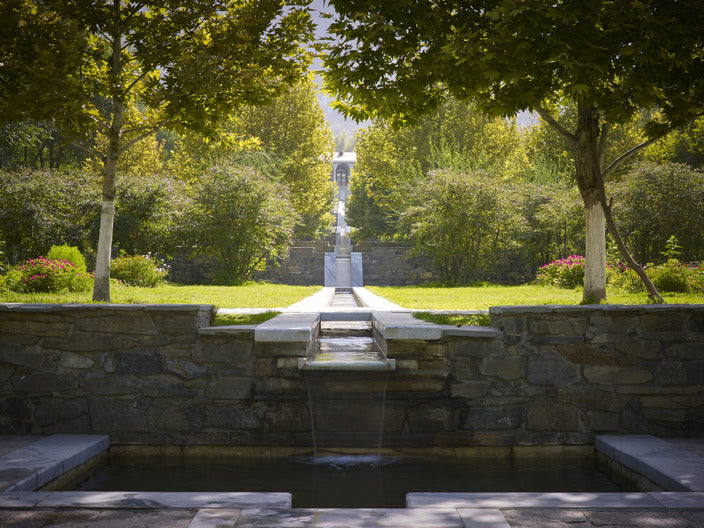
Timbuktu: A wild story of Myth, Renaissance, Rescue & Ruin
Fig 1. Timbuktu: A wild story of Myth, Renaissance, Rescue & Ruin [source unknown]

Fig 2. Google’s top search suggestions [source unknown]
‘I don’t care if you’re in Timbuktu,’ we might say. ‘You’ll be here tomorrow or else!’ Or perhaps, ‘He’s flirted with every girl from here to Timbuktu!’ It means something like God Knows Where, or A Million Miles Away. Many imagine it to be a myth, like Atlantis, and few would be able to place it on a map where it stands in northern Mali, where the canoes of the River Niger, running from the west and turning south, meet the camel routes north across the Sahara.
The vagueness of our understanding is nothing new. For 500 years, Europeans knew little more about Timbuktu than the name. They knew that in 1325, its king Mansa Musa had made the pilgrimage to Mecca, and had dispensed so much gold in Egypt and Arabia that the price collapsed, and the Eastern Mediterranean economy was devastated for decades. Onlookers had been astonished at the procession of 60,000 attendants in brocaded silk, carrying bars and staffs of gold in their hands. European imagination ran riot, and ‘Timbuktu’ came to mean something like ‘Eldorado’.
It was not until 1526 that Europeans would get their hands on a first-hand account of the fabled city. At the age of 24, an exceptionally intelligent and well-travelled young Muslim was captured at sea. Baptised and christened ‘Leo Africanus’, he became an eminent scholar in the court of Pope Leo X. The royal court, he wrote, was not only ‘magnificent’ but sophisticated:

Fig 3. The 1375 Catalan Atlas of Charles V: ‘This negro lord is called Musa Mali; Lord of the Negroes of Guinea, the richest and most noble king, so abundant is the gold found in his land.’ [source unknown]

Fig 4. A sketch by René Caillié [source unknown]
For three centuries, with many unsuccessful, often fatal attempts by European explorers, the myth of Timbuktu continued to grow. Meanwhile, the real city went into decline. In 1591, the Moors sacked it, plundered its wealth, and removed every scholar to Morocco in chains. The city never recovered, and when Frenchman René Caillié finally reached his Eldorado in 1828, he was deeply disappointed by what he found:

Fig 5. A beautifully-illuminated Timbuktu manuscript — (c) B. Stirton, Getty Images / Nat Geo
Tennyson’s ‘Timbuctoo’ (1829, quoted at top) explores the heart-wrenching deflation of a legend. Now, we remember the place only for what felt like its impossible remoteness.
But for the people of West Africa, the myth of Timbuktu has a much greater significance. They remember that at its height in the 15th and 16th centuries, this was one of the world’s major scholarly communities, producing millions of philosophical and religious discourses, histories, anthologies of folk tale, and even sex manuals. When African American professor Henry Louis Gates Jr (who himself was raised on the lie that precolonial Africa was illiterate) visited Timbuktu in 1997, he was astonsished:

Fig 6. A 15th-century manuscript rescued by Haidara — (c) Prince Claus Fund [source unknown]
The university may have died in 1591, but it lived on in the hearts of the locals. This heritage was part of their sense of self, and they honored it by their dutiful guardianship of hundreds of thousands of mediaeval manuscripts. For centuries, families across West Africa kept them hidden like ancestral treasure in wells, behind walls, and beneath the ground. Few would have been able to read the texts themselves, but they saved from oblivion this wealth of voices from the past.
In the early 1990s, the myth of Timbuktu woke again from its long sleep. A movement led by Abdel Kader Haidara, a scion of one of the city’s book-keeping families, brought about a renaissance. Haidara and his followers travelled tirelessly around the region on the scent of this buried treasure. Over time the libraries' manuscript holdings grew from the thousands to the hundreds of thousands. Rescued from termites and rot, the books would finally receive the conservation and scholarly attention they deserved. Visitors began to arrive, and a new festival of culture (’Festival au Désert’, instituted in 2001) attracted a worldwide audience.
Tragically, Timbuktu’s short-lived renaissance ended abruptly on 13 June, 2012. Al Qa’ida in the Islamic Maghreb (AQIM) swept to power in northern Mali, bringing with them their own, fundamentalist interpretation of Sharia law. This was the city of 333 Sufi saints, and locals were accustomed to stop and pray at the ancient, mud-brick tombs of holy men. But before long, Al Qa’ida came with guns and pick-axes intent on destroying all suriving shrines in the area. A mosque’s door, unopened for centuries and supposed to remain sealed until Judgement Day, lay in fragments on the ground. Haidara realised that his city’s heritage, his life’s work, was in mortal danger.
‘I don’t care if you’re in Timbuktu,’ we might say. ‘You’ll be here tomorrow or else!’ Or perhaps, ‘He’s flirted with every girl from here to Timbuktu!’ It means something like God Knows Where, or A Million Miles Away. Many imagine it to be a myth, like Atlantis, and few would be able to place it on a map where it stands in northern Mali, where the canoes of the River Niger, running from the west and turning south, meet the camel routes north across the Sahara.
Haidara hurriedly bought or fashioned thousands of metal lockers and hid them in his library. In secret, by torchlight, a small team of volunteers set about packing the entire collection away. He sent the boxes to be hidden in family houses across the deserts of northern Mali. He knew in Bamako, the capital city, the books would be safe. But how to get them there?
With the help of his friend, Stephanie Diakité, and funding she was able to secure from the Dutch government, Haidara employed a troupe of smugglers to bring the lockers down the road hidden in buses, and downriver in the base of canoes.
On 28 January 2013, as the French military forces finally arrived on the edge of Timbuktu, Al Qa’ida delivered Haidara’s worst expectations. As the terrorists retreated from their defensive positions, they emptied the city’s libraries of all its remaining books and manuscripts, leaving a smouldering bonfire in their wake.
Thankfully, due to the librarians’ heroic clandestine efforts, this amounted to only a few manuscripts. The vast bulk (some 350,000 manuscripts) is now safe in Bamako, being methodically restored and digitised by a team of codicologists. Gradually, West Africa’s lost history, literature and philosophy is emerging from the dark.
Today’s Timbuktu is not a city of gold, nor the middle of nowhere, nor a university. It is a gravely wounded city, and its libraries may stand empty for some time yet. But the myth of Timbuktu as a centre of learning, as the intellectual heritage of West Africa, is full of truth. It is there in the books, and in the actions of librarians, scholars and smugglers, and in people’s hearts.









